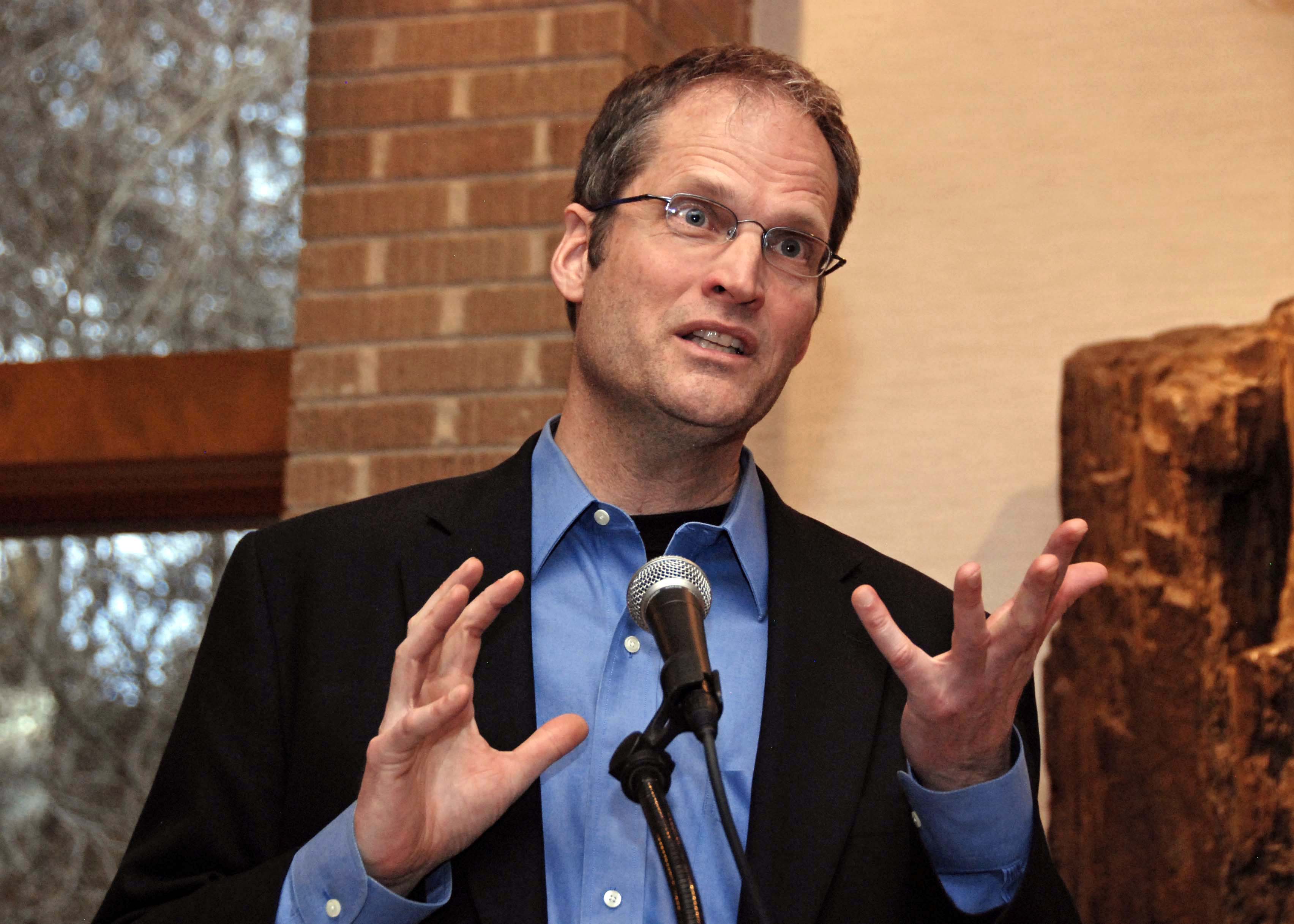
“Don’t talk about religion or politics” is a familiar prescription for avoiding conflict in polite society. But in a talk at Temple Israel entitled “Moving from Tolerance to Respect” on Sunday, Stephen Prothero suggested that following this mandate may actually be more harmful than helpful depending on the quality of the dialogue and the knowledge of its participants.
The noted commentator on religion—who has appeared on everything from CNN, PBS, and FOX to “The Colbert Report” and “The Oprah Winfrey Show”—and Study of Religion PhD from Harvard noted that the US is among the most religious nations in the world, but Americans are also the least knowledgeable about our own and others’ religions.
Citing a 2010 Pew Research survey, Prothero, who spoke for about an hour to a standing-room only crowd at the Interfaith Council of Westport-Weston’s invitation, shared highlights (or perhaps lowlights is more appropriate) from the survey.
Most could not identify Genesis as the first book of the Bible or the Koran as the holy book of Islam. Two-thirds of survey respondents could not attribute The Sermon on the Mount to Jesus. Joan of Arc, according to 10 percent of respondents, was identified as Moses’ wife.
On a more personal note, Prothero observed that when he asked his own daughter to identify characters from the Bible—“But not Jesus. That’s too easy”— she struggled in silence before finally offering “Tom,” referring, apparently, to “Doubting Thomas.” Though he may, Prothero conceded, “have been ‘Tom’ to his friends.” Among his students at Boston University, Prothero revealed that only one in nine could pass a religious literacy test with a passing grade of 60 percent.
So why does it matter that we know so little about our own and others’ religions?
“Religion has public power,” Prothero explained. “It affects our conversations about poverty, war, torture, marriage. It moves economies and militaries worldwide. You can’t make sense of the world without making sense of religion.”
He rejected the notion that the world can be understood purely in terms of economies and power because “for better or worse, people act on their religious practices.” To further illustrate, Porthero pointed out that politicians from both political parties have invoked religion to explain their policies. Though Rick Santorum is a familiar example, Barack Obama has also referenced the Bible to account for his political stance, specifically to justify higher tax brackets for the wealthy.
“These religions very quickly veer off from one another,” Prothero said. “To start with, religions define the human predicament, the ‘going wrong-ness,’ differently. For Buddhism, it’s suffering. For Christianity, it’s sin. For Islam, it’s pride.”
Reducing all religions to their similarities (in the “you light candles? So do we!” vein), he argued, is ‘condescending and dangerous.’ All religions do not ask the same questions, do not define the core human problem the same way, or offer the same prescriptions for solving it.
To marginalize differences, according to Prothero, amounts to ‘a kind of wishful thinking’ that hasn’t made the world safer but more dangerous because we don’t allow ourselves to understand those differences. It also prevents us from ‘seeing the beauty of other religions.’
“Why bother learning about them if you’re not going to learn anything new?” he asked. “What we need isn’t pretend pluralism but a clear-eyed view of both the beautiful and the ugly, of our similarities and our differences.” The problem, for Prothero, isn’t difference itself but “our inability to manage difference, or even see it.”
So how can we begin to manage difference? Prothero offered three suggestions.
As a starting point, he said, we need a theory that religious difference “is okay and doesn’t have to be collapsed into sameness.” In support of this, we need to turn to history, which provides examples from the US and the world where different religious groups have lived together peacefully and collaborated. And finally, “we need rituals for getting along amidst our differences,” just as families have rituals for working through conflict.
“I don’t subscribe to the belief that where there’s difference, there will be bloodshed,” he said. “I take a more optimistic view.”
But we do have to learn to argue in a way that brings us together.
“We have a strong tradition of conciliation and civility in this country,” he concluded. “I find that hopeful.”